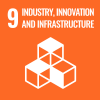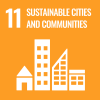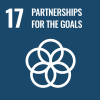“The increasing role of e-government in promoting inclusive and participatory development has gone hand-in-hand with the growing demands for transparency and accountability in all regions of the world,” said Sha Zukang, UN DESA Under-Secretary-General in the newly released United Nations E-government Survey 2012.
The survey, prepared by UN DESA’s Division for Public Administration and Development Management, assesses Member States’ government web portals with a focus on the provision of e-information and e-services; these services include interactive, transactional, and e-participation features that connect governments and citizens.
Member States are ranked in accordance with the E-Government Development Index (EGDI), a composite indicator measuring the willingness and capacity of national administrations to use information and communication technologies to deliver public services. The EGDI is a weighted average of three normalized scores on the most important dimensions of e-government: scope and quality of online services, development status of telecommunication infrastructure, and inherent human capital.
The Government of the Republic of Korea maintained its first rank position in e-government, which it earned in 2010. The Netherlands came in second, three positions higher than in 2010 and the United Kingdom advanced by one position to become the third most advanced e-government in the world. Denmark, the United States, France and Sweden follow closely behind. Israel, Liechtenstein and Luxembourg, which have invested considerable resources in e-government in the last few years, made the top 20 for the first time.
The survey’s rankings highlight that there is no single superior model of e-government. Member States at different stages of e-government development, namely emerging, enhanced, transactional, and connected, can adopt different models of e-government in line with the specific needs and wants of their respective constituencies.
Overall, Member States have moved from a decentralized single-purpose model of e-government to a unified whole-of-government model for the people. While most European Member States follow the approach of separate portals for their information, service and participation offerings, the Republic of Korea, the United States, Israel, Australia, Norway, Denmark, and New Zealand are among the few that come close to pure one-stop-shop portals with information, services and participation services integrated on a single site.
The survey concludes by recommending that governments put greater emphasis on e-government to develop and solidify institutional cohesion, and integrate administration and service delivery. The ultimate goal is for legitimate and effective public governance to result in smart, inclusive and equitable growth for today's and tomorrow's generations.
Related information
 Welcome to the United Nations
Welcome to the United Nations



